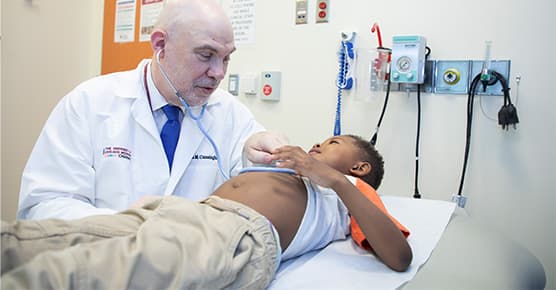Diagnosing & Treating Pediatric Lymphoma
Diagnosing Childhood Lymphoma
The diagnosis of lymphoma begins with a complete medical history and exam. If lymphoma is suspected, some of the following tests may be performed to establish a diagnosis:
- Biopsy of lymph nodes or of the mass (by minimally invasive surgery, open surgery or interventional radiology) to assess if your child has lymphoma
- Pathology (microscopic examination of tissue) to determine the type of lymphoma
- Bone marrow aspirate or biopsy and medical imaging (X-ray, MRI, CT, PET and/or bone scans) to determine extent of the disease
- Blood and urine tests
Advanced Treatments
When choosing a course of treatment, our hematologist/oncologists do everything possible to minimize the effects of therapy on a child's health and development. In addition to conventional treatments, we provide the latest therapies for lymphoma including:
- The most recent approaches to chemotherapy, including the newest targeted agents
- The most advanced radiation therapy, which focuses on cancer cells, avoiding harm to healthy cells and tissue
- Blood stem cell and bone marrow transplantation
- Combining different treatment options, including surgery, chemotherapy and radiation when needed
- Advanced supportive therapies to reduce fatigue, infections, bleeding, nausea and other side effects of treatment
- Clinical trials of promising new therapies
Our doctors and researchers continue to look for ways to refine treatments so that patients get the most effective therapy with the least toxicity.



